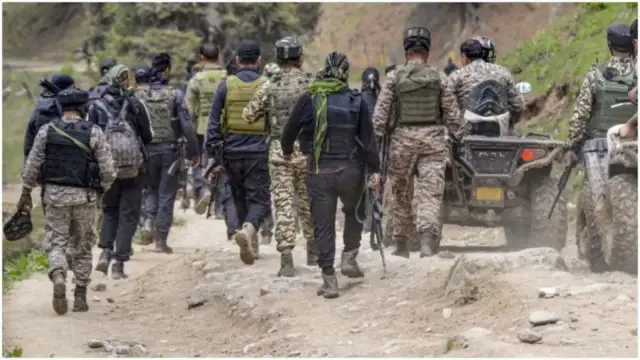Auranzeb's Tomb: Symbol of 'pain, slavery' or piece of history?
Maharashtra: The violence in central Nagpur on Monday was caused by a mix of reasons including rumors and tensions over two major issues: the desecration of the holy book of the Muslim faith and calls to demolish Aurangzeb's tomb.

Maharashtra: The violence in central Nagpur on Monday was caused by a mix of reasons including rumors and tensions over two major issues: the desecration of the holy book of the Muslim faith and calls to demolish Aurangzeb's tomb.
What caused the clashes?
Rumours went around that the Quran was burnt amidst the demonstration, as per the police. Social media saw viral videos of the Bajrang Dal protest in no time, and outrage erupted from the Muslim community.
Curfew in Nagpur
Pursuant to an official statement from Maharashtra Police, curfew has been imposed in various parts of Nagpur city under Section 163 of the Bhartiya Nagarik Suraksha Sanhita (BNSS) following tension over the demand to uproot Aurangzeb's tomb. According to the directive issued by Nagpur Police Commissioner Ravinder Kumar Singal, the curbs will remain in place till further notice. The curfew includes police station areas in Kotwali, Ganeshpeth, Tehsil, Lakadganj, Pachpaoli, Shantinagar, Sakkardara, Nandanvan, Imamwada, Yashodharanagar, and Kapilnagar. Mayawati urges Maharashtra govt to take action against "unruly elements"
BSP leader Mayawati
BSP leader Mayawati on Tuesday morning termed such demands as "not right" and harmful to the "mutual brotherhood, peace and harmony". She urged the government of Maharashtra to take action against "unruly elements". Apprehending that the situation might escalate, Mayawati appealed to the Mahayuti state government in Maharashtra to take strong action against "unruly elements".
"It is not appropriate to deface or destroy anyone's grave or mausoleum in Maharashtra because this is tarnishing the brotherhood, peace and harmony prevailing there. Such hooligan elements must be dealt with by the government very sternly, particularly in Nagpur. Else, the scenario may deteriorate, which is not appropriate," the BSP president shared on X.
Security increased at Aurangzeb's tomb
In response to calls from the Vishwa Hindu Parishad (VHP) for its demolition, security has been ramped up at the tomb of Mughal Emperor Aurangzeb in Maharashtra's Chhatrapati Sambhajinagar district. Police now insist that all visitors register and show identity, and they have set up several security points along the path to the site from Khultabad town. The VHP's memorandum to Chief Minister Devendra Fadnavis refers to the controversial history of Aurangzeb, such as his battle with the Marathas and destructive acts on temples. It calls his tomb a monument to "pain and slavery."
The Controversy
The call for the excavation of Aurangzeb's grave has intensified among some Hindu right-wing organizations, citing his policies as oppressive and against the country's secular texture. These communities argue that the existence of the grave of Aurangzeb in some places is a sign of oppression and must be erased or shifted.
History of Aurangzeb
Aurangzeb, the final of the considerable Mughal emperors, governed from 1658 to 1707. He was famous for his orthodox policies, among which was the demolition of Hindu temples and the levy of jizya (a tax on non-Muslims).















